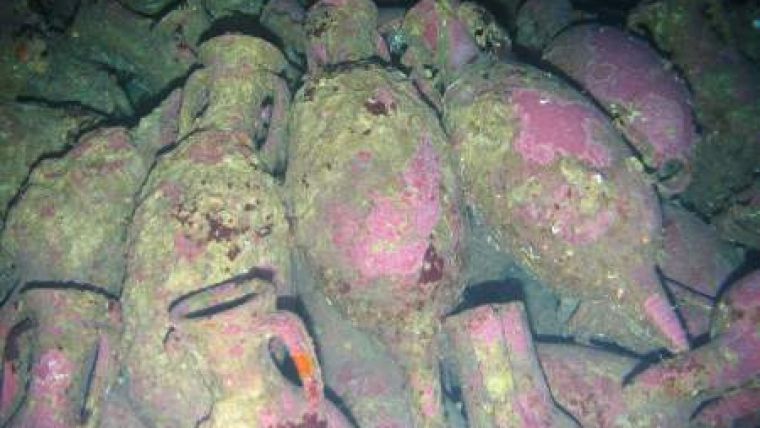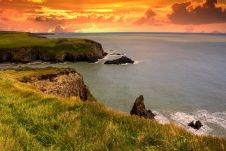Ocean Pioneers to Explore New Business Model
The struggling economy has cost many non-profit organisations vital financial support as their benefactors rein in spending. Initially funded entirely by philanthropic donations averaging USD 1 million per year, AURORA has been forced to reinvent its business model now that its backers can no longer provide support. This has led AURORA to pursue some alternative income streams that include seeking commercial survey work, chartering its vessels to other organisations and individuals, and even offering tourists a place onboard during archaeological expeditions.
It's a sign of the times that a non-profit research group would have to seek commercial income while still courting philanthropists, but the alternative would be the end of an important archaeological mission.
Case in point is Malta-based AURORA Trust, an ocean exploration group that has established an impressive record in just a few years, locating and documenting 22 ancient shipwrecks, including one from the 7th century BC, the oldest wreck found in the western Mediterranean.
AURORA was founded in 2004 by ocean pioneers Ian Koblick and Craig Mullen to research the depths of the Mediterranean Sea and share their discoveries with the public. Explorers in the classic tradition, Koblick and Mullen are the ocean's answer to Lewis and Clark. The pair have between them almost a century of exploration experience and have managed several ocean-based enterprises around the world, weathering many natural and economic storms in the process.
Koblick is a veteran of numerous undersea living projects dating back to the 1970s, including Project Tektite, Puerto Rico International Undersea Laboratory (PRINUL) and Marine Lab, the world's first undersea classroom. In 1986 he developed, and still operates, the world's only undersea hotel, Jules Undersea Lodge. In 1970 he founded the Marine Resources Development Foundation, a research and education non-profit foundation that has taught more than 200,000 teachers and students about the marine environment.
Craig Mullen began his marine career in the 1960s as a US Navy diving officer during the Vietnam War. He later served in the Navy's Deep Submergence Program Office and as the Director of Operations with the Navy's Supervisor of Diving, Salvage and Ocean Engineering. In 1973, Mullen joined Alcoa Marine as VP of Operations overseeing the company's deep-sea research vessel R/V Alcoa Seaprobe and, in 1980, helped purchase the subsidiary from Alcoa. Renamed as Eastport International and serving as its president, the firm became a world leader in deep ocean technology development and operations. In 1993 he negotiated a merger between Eastport and Oceaneering International, Inc., and remained the head of a newly formed subsidiary, Oceaneering Advanced Technologies Group, for 5 years.
Adding to their individual accomplishments, Koblick and Mullen have made headlines together directing AURORA's exploration efforts. Their credits include high profile finds in the waters off France, Malta, Spain, Sicily, Italy and Croatia, many of which were featured in newspapers, magazines and television documentaries. According to Koblick, "An important part of the work we do is ensuring the word gets out so people understand the value of archeology and what it teaches us about ourselves."
One of AURORA's recent discoveries became the subject of a PBS / National Geographic television special entitled 'Lost Ships of Rome'. Working in 500 feet of water about 10 miles west of Naples, off the Italian island of Ventotene the AURORA team located five Roman ships dating back to between the second century BC and fifth century CE. Commenting on the discovery, Koblick said, "The fact that AURORA was able to find five shipwrecks in this very small area in a matter of a few weeks is an indication of how much remains to be discovered underwater and how effectively that can be achieved through undersea exploration." Mullen added that, "With today's sophisticated software and technology tools searching for undersea artifacts has become a much more productive enterprise. Our discoveries off Ventotene are just the latest benefits of these advances."
The positive publicity and the quality of the work have also reflected well on the countries that support AURORA's work and they in turn benefit from acquiring precious artifacts and greater knowledge about their past. AURORA's accomplishments and professional approach to archeology have helped the team secure government support for future exploration projects - an enviable position in an uncertain operating environment. Koblick noted that, "No one can effectively explore these delicate areas without the respect and support of country partners. It is humbling to have earned the trust and encouragement of so many governments."
Their track record has won support from their peers as well. In keeping with their explorer roots, Mullen and Koblick are both members of the prestigious Explorer's Club, an international society founded in 1904 that is dedicated to the advancement of field research and the ideal that it is vital to preserve the instinct to explore. The pair has earned the rare privilege of carrying the Club flag on three expeditions, most recently in September 2011 on a Croatian exploration project.
To make up for the recent loss of financial support Mullen and Koblick have established two new business entities, for which they are seeking additional private investment. The companies are beginning to generate income to support the archaeological projects by performing commercial survey work, and carrying out high-end archeological tourism, or 'archaeo-tourism', as Koblick puts it. The main assets at their disposal include a USD 4 million, 85 ft luxury motor yacht Fortaleza, and a 27 ft research vessel, Isis, which is equipped with side scan sonar, sub bottom profiler, magnetometer, ROV (Remotely Operated Vehicle) and all the software and hardware required to operate to depths down to 3,000 feet.
Koblick and Mullen hope the above offerings will help replace the loss of their USD 1 million annual philanthropic base. The only compromise may be the need to adapt their exploration schedules to align with customer needs. Even with the economic downturn and the loss of their original funding source, Koblick and Mullen are upbeat about the prospects that lie ahead. Not surprising for a pair of ocean explorers used to rough seas.














